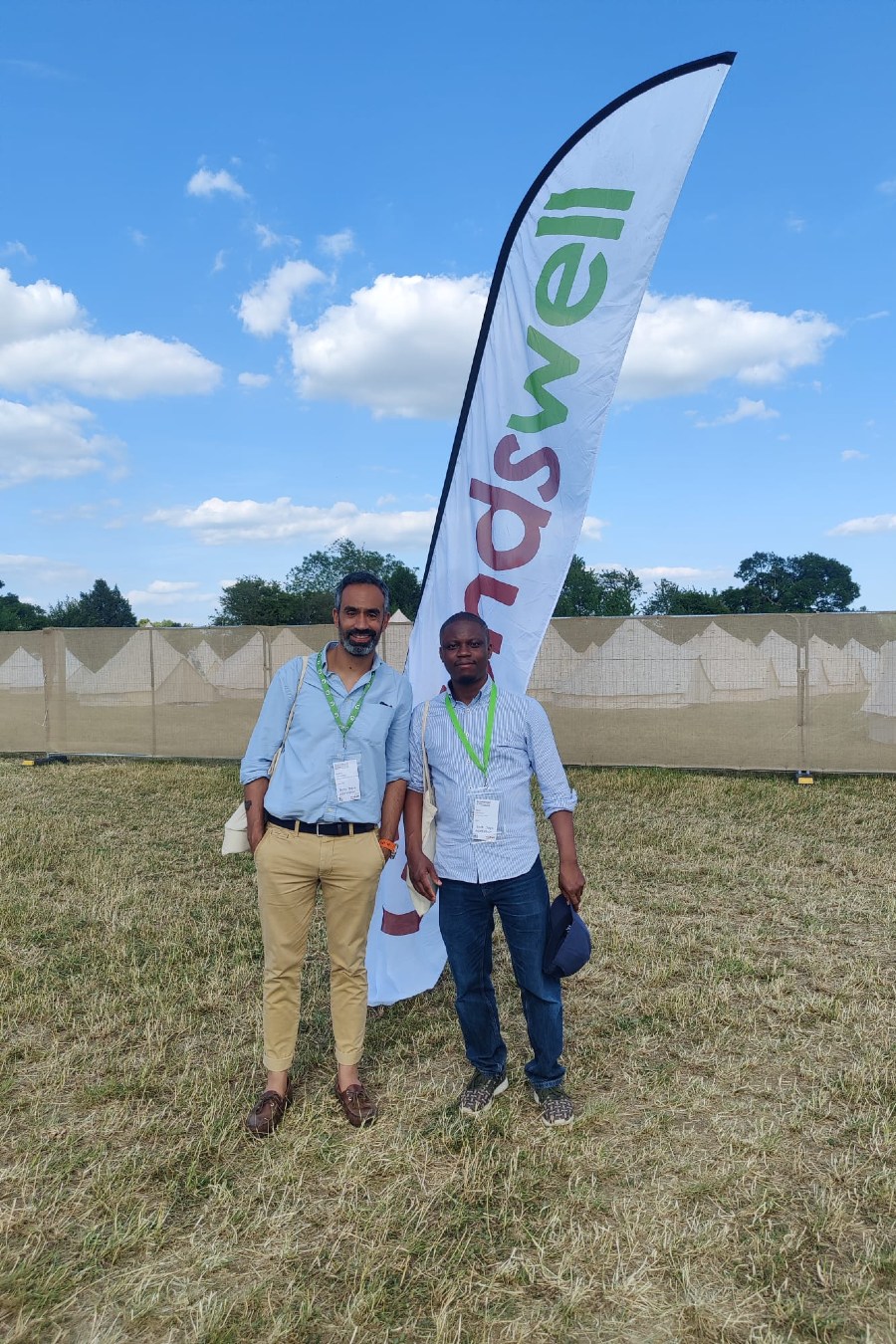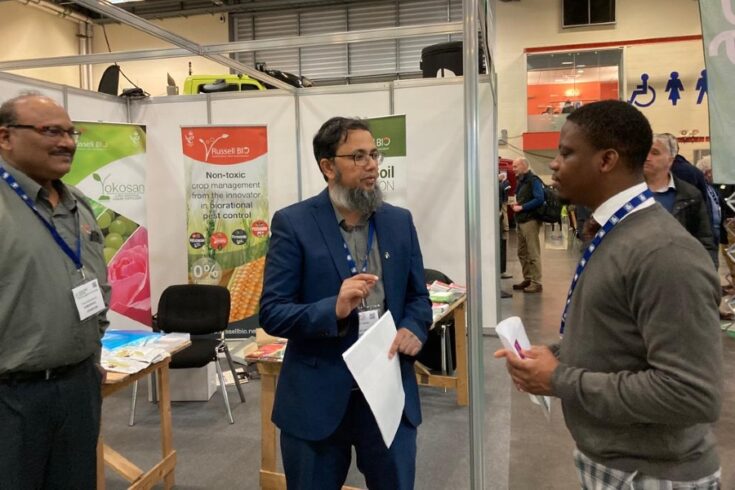Being out and about across the industry’s event scene is a big part of our work in the transforming food production (TFP) challenge. They provide valuable opportunities to network and build new connections, helps us to support the exhibitions of the projects we’ve funded and see what other innovations are coming to life in the sector. That’s before we even include our own speaking and exhibiting plans.
I recently attended two of the food industry’s flagship events, Groundswell and Fruit Focus, looking to see the latest technology on show, as well as considering how the TFP challenge can go further in our efforts to reach out to new potential innovators, and introduce more to the funding and collaboration opportunities that TFP can bring.
Glastonbury of agriculture

Credit: Paul Laniran
This year’s Groundswell, famously dubbed as the “Glastonbury of all ag events of 2022”, was an eye opener in many regards.
Despite the hot weather peaking at 26C on the first day (honestly, it felt more like 38C) and light showers on the second day (usually a showstopper), the raw passion and level of engagement from farmers, growers and land practitioners was incredible.
Attendees were not only flocking to the speaking events, but they were also utilising every opportunity to visit relevant stalls to see the latest technologies within their industry – many of which carried a focus on sustainability and environmental protection.
More than 120 sessions took place over the two days, with a wide array of interesting events ranging from demonstration, panel discussion, seminars, and, as expected, several TFP-funded projects were demonstrated and discussed. The most interesting aspect of these projects at Groundswell was just how apt they are to the current realities in the food space, addressing real farmer challenges.
Novel green fertilisers
It’s not news that the cost of fertilisers, particularly nitrogen fertiliser made from natural gas, across the world has soared amidst the conflict in Ukraine – with Russia being a major source of natural gas.
As a result, it was not surprising that a TFP-funded project, “evaluating efficacy of novel green fertilisers using carbon capture technology” was one of the most interesting and well-visited solutions on display.
This project, led by CCm Technology, uses captured carbon dioxide from industrial power generation and infuses it into organic material to create new fertiliser products with significantly lower than usual carbon footprint. In a fireside chat at the event, Peter Hammond from CCm explained the processes involved in the manufacture of this green fertiliser to an engaged audience of farmers, growers and land managers.
Video credit: UKRI
On-screen captions and an autogenerated transcript are available on YouTube.
Artificial intelligence (AI) and data in farming
Another interesting TFP-funded solution on display was FarmPEP. Led by Adas, FarmPEP is a knowledge exchange platform for farmers, advisors, industry and researchers to synthesise and share knowledge that works on-farm.
This kind of AI and data-driven technology is not only becoming more popular, but represents the natural direction of travel for farmers and growers alike when it comes to their monitoring and evaluation strategies.
The fruit show
Like Groundswell, there was a similar level of interest and engagement at Fruit Focus 2022, where the audience was keen to understand the opportunities out there for them. Several panels, tours, seminars, and live demonstrations took place in a day packed event with topics ranging from addressing cost of inflation to labour shortages in the horticultural sector.
As expected, TFP-funded projects were the headline acts to see. “New sustainable solution to save healthy fruit from spotted wing Drosophila” fondly referred to as STOP-SPOT delivered a presentation on a unique way of controlling spotted wing Drosophila (SWD).
SWD was first reported in Britain in 2012 and has the potential of costing growers substantial amounts in terms of materials, equipment, new infrastructure and extra labour. This insect can infect several fruit crops including:
- strawberries
- raspberries
- blackberries
- currants
- blueberries
- grapes
- cherries
- plums.
So commercially developing a sterile insect technique as a control method for SWD has limitless opportunities both in the UK and Europe.
Another TFP-funded project on display was “integrating nutrient demand models and ion selective electrode sensors with precision dosing rigs to improve resource use and productivity and reduce waste and emissions in commercial raspberry production”. This project is demonstrating to a wider audience, the use of prototype AI-based sensors that determine the need of macro- and micro-nutrients in raspberries in real time. The successes of this project will redefine and reduce fertiliser use in growing raspberries and hopefully other crops in future.
What’s coming up?
We’ll be taking part in a number of other key events in the coming months, looking at the whole cross-sector of the food industry – from crops, to animals and new technology.
If you’d like to find out more about the TFP challenge, where we’ll be attending and exhibiting in the year ahead, or perhaps how you can get involved, visit our website and contact the TFP team.
The TFP challenge is delivered by Innovate UK.
Top image: Credit: Paul Laniran




